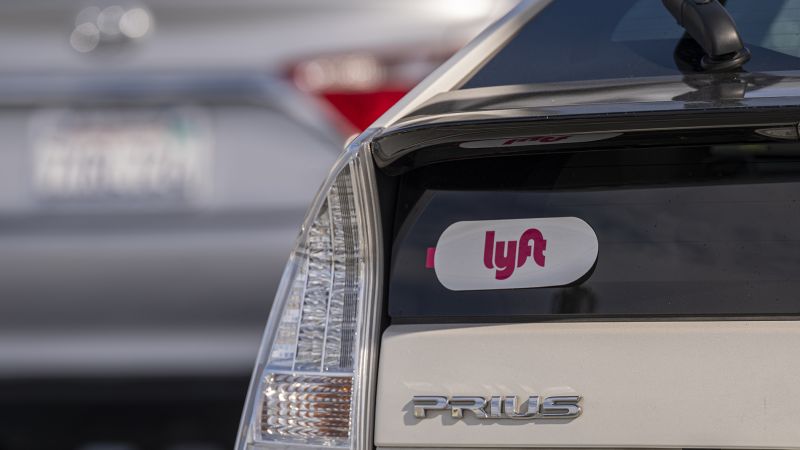Lyft is introducing a new feature that lets women and non-binary riders choose a preference to match with drivers of the same gender.
The ride-hailing company said it was a “highly requested feature” in a blog post Tuesday, saying the new feature allows women and non-binary people to “feel that much more confident” in using Lyft and also hopefully encourage more women to sign up to be drivers to access its “flexible earning opportunities.”
The service, called “Women+ Connect,” is rolling out in the coming months. Riders can turn on the option in the Lyft app, however the company warns that it’s not a guarantee that they’ll be matched with a women or non-binary person if one of those people aren’t nearby. Both the riders and drivers will need to opt-in to the feature for it work and riders must chose a gender for it to work.



Equity is antithetical to equality. They are oppositional ideals. Either you aim to provide equal opportunity for everyone, or you intentionally limit opportunity to ensure equal outcomes. Democracy and multiculturalism is premised on equality. It seeks to ensure the right of different groups to behave differently and arrive at different outcomes. For example, Asian high-school students spend significantly more time studying and doing homework than any other ethnic or racial group. You can verify these stats yourself by going to the cited source. Unsurprisingly, this group earns more, has higher employment, and lower crime.
Equity, on the other hand, is authoritarian. To use the example above, it means either forcing Asian children to study less, or forcing children of other ethnicities to study more. There is no room for cultural differences or free expression. Equity is only achievable under an authoritarian system, because in order to achieve it, it requires ensuring every child has exactly the same experience in life. The same amount of homework. The same schools. The same friends and family. The same sports and extracurricular activities. The same hobbies. They must study the same subjects in school and universities. It requires complete homogeneity. No modern society wants this, and the use of the term “equity” is deeply alarming to anyone who considers themselves democratic or liberal in the classical sense.
Right. And don’t forget to address the issue of them all being differently situated as a starting condition. You’ll have to kneecap some and put others on wheels.
In this specific situation no one is kneecapping anyone though. For men nothing changes. Some here in the comments are just butthurt that others get a tiny feature to make it more safe for them. While men didn’t have any change to their safety by being able to just have male drivers.
It’s literally just people being uncompassionate and angry over nothing.
if male drivers are deprioritized, that results in them getting less riders and being a second class worker. I think we can all agree that the gig economy is shitty enough already and we dont need to add a caste system on top of it
This is something they do to get more drivers. It was a caste system before because the higher probability of women and non-binary people to get assaulted, harassed, even raped was a factor keeping them away from that job.
Yes, they introduced a lazy solution to try and make more money
That’s not a caste system, and introducing actual systemic discrimination is not a solution to a safety issue.
If Lyft actually wanted solutions, they could vet their drivers more, take reports of vulnerable people seriously and give consequences to drivers which act abusive, create a “trusted driver” program, etc, there are tons of solutions that don’t involve discriminating on 3/4 of their drivers because they’re trying to make more money
Lol no.
Equity in this case is providing additional opportunities for education to those who need it.
That would be equality. Everyone given the same opportunity to benefit from resources on the basis of need. Equity would be providing additional resources to people on the basis of race, for example, irrespective of their need. The purpose of which to ensure outcomes are equitable.
Again, no.
Equity is explicitly about need. Equality is irrespective of need. This is literally the definition I gave at the start of this discussion.
Obviously to enact equitable policies, you can’t handle things on a case-by-case basis, because that doesn’t scale. You have to find metrics that correlate with need. The only policies that scale are those that target cohorts rather than individuals.
In the example of school funding, reasonable cohorts can be derived from income level and relatedly (for historical reasons in the US) race.
In the case of ride-share safety for both riders and drivers, gender is a decent axis for defining cohorts.
You gave an example of a school. It’s really obvious that the above poster was addressing the example that you gave.
That wasn’t clear to me but thanks for clarifying. I’ll edit my comment above.
If you are providing additional X to a subset of people it is by definition not equality. The two are jot compatible.
If the two people didnt start in the exact same place then they were already unequal though. So the equity option just makes them closer to equal, equality is not measured in simply ‘how much you get for free’. I work with people with disabilities getting more ‘free’ support than you or I will ever see, are they more equal than the rest of us for it?
That is literally the distinction between equality and equity. There are different words that mean close to similar things.
Because the goal is equality of outcome. Like I said equality between people is not measured in “how much stuff you are given”